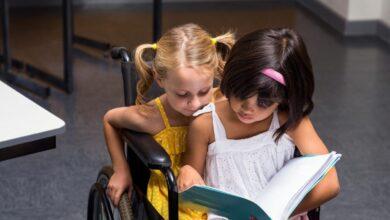Ministry of Education and Science publishes new curricula for students in grades 5-7 in view of full-scale war

In recent years, the Ministry of Education and Science of Ukraine (MES) has been actively introducing constant innovations that sometimes spark debate and discussion in society due to their controversial and unpredictable nature. Education reforms often become a field of controversy, as many question their appropriateness at such a critical time. However, the Ministry of Education and Science believes that changes are necessary to adapt to new challenges and ensure quality education even in times of war. One of the most recent steps in this direction has been the updating of the curriculum for students in grades 5-7 as part of the New Ukrainian School (NUS) initiative.
This initiative, launched several years ago, aims to reform school education to bring it in line with modern needs and standards. Its main goal is to develop in students such competencies as critical thinking, creativity, communication skills, lifelong learning and others necessary for successful life in the modern world. However, the introduction of these innovations during the war raises many questions about their effectiveness and the possibility of real implementation in an environment where many schools operate remotely or intermittently due to shelling and the difficult humanitarian situation.
Educational programmes for grades 5-7: updated content approaches
Recently, the Ministry of Education and Science of Ukraine released updated curricula for students in grades 5-7, which include several core subjects: science, linguistics, literature, mathematics, art, and an interdisciplinary course called Drama and Theatre. This new approach is based on the principles of integration, which allows combining knowledge from different disciplines and developing interdisciplinary thinking in students. In particular, the Drama and Theatre course is designed not only to provide children with knowledge in the arts, but also to help them develop emotional intelligence, communication skills and the ability to collaborate.
It is important that these updated programmes take into account the needs of modern school education, which must meet the challenges of the times. During the COVID-19 pandemic and the war, the problem of gaps in the learning process became particularly acute, leaving many students with a significant amount of knowledge lost or unable to fully absorb the material. The changes made to the programmes are aimed at minimising these losses and filling in possible knowledge gaps. For example, each curriculum includes a precise allocation of time for each topic so that teachers can plan the learning process effectively and pay more attention to topics that cause difficulties for students.
Main goals and objectives of the updated programmes
The updated programmes are still based on the State Standard of Secondary Education, but with new emphasis on integrated approaches and more modern teaching methods. The main goal of the changes is to equip students with the knowledge and skills necessary to successfully overcome difficulties caused by external circumstances, such as war and social upheaval. The innovations, as the authors of the programmes emphasise, are designed in such a way that they can be implemented even in time-sensitive environments. This means that teachers can adapt the new programmes to the real conditions and opportunities available in a particular region or school.
For example, in science, there is a greater emphasis on integrating knowledge of physics, chemistry, biology and geography to help students better understand the relationships between different natural phenomena. In linguistics, new modules have been introduced that cover the development of writing and speaking skills, as well as the understanding of texts of different styles and genres. This is especially important for the development of critical thinking and communication skills, which are key competences today.
The impact of war on the educational process and the adaptation of new programmes
It is clear that the war has had a significant impact on the educational process in Ukraine. Many schools are forced to work remotely or intermittently due to the constant threat of shelling and other factors. In such circumstances, the Ministry of Education and Science is trying to create flexible educational programmes that can be easily adapted to any conditions. For example, teachers can use the new programmes in online learning or integrate them into combined forms of education that include both distance and face-to-face classes.
Innovations in educational programmes also include more active use of digital technologies. Students will be able to use online resources to study additional material, which will allow them to compensate for the lack of time in class or gaps in learning due to forced breaks. It will also allow schools operating in difficult conditions to provide students with a quality education even if they cannot attend classes regularly.
Benefits and challenges of the new curricula
The introduction of new curricula for grades 5-7 has its advantages and challenges. On the one hand, the updated curricula allow for more efficient use of classroom time and resources, focusing on key topics and providing an integrated approach to learning. This allows students to better understand complex topics and the interrelationships between them, which is important for their overall development.
On the other hand, the introduction of new curricula can be a challenge for teachers, especially those working in contexts of instability and limited resources. For example, some schools in frontline areas have difficulty accessing the internet or having enough teaching materials, which can make it difficult to implement new programmes. There is also the question of whether all teachers have the necessary training to work with the new curricula, especially in the face of constant changes in the learning process.
The updated curricula for grades 5-7 aim to provide students with the modern knowledge and skills needed to live successfully in an environment of uncertainty and change. However, the implementation of these programmes requires a high level of training, flexibility and the ability to adapt to the new challenges facing Ukrainian education in the context of war.





